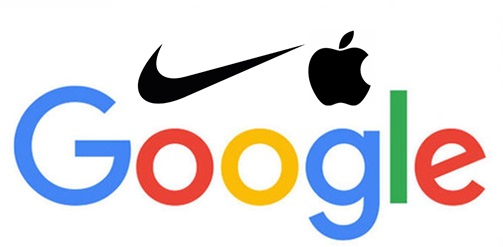Generative artificial intelligence (AI) in education – GOV.UK
We use some essential cookies to make this website work.We’d like to set additional cookies to understand how you

We use some essential cookies to make this website work.
We’d like to set additional cookies to understand how you use GOV.UK, remember your settings and improve government services.
We also use cookies set by other sites to help us deliver content from their services.
You have accepted additional cookies.
You have rejected additional cookies.
Departments, agencies and public bodies
News stories, speeches, letters and notices
Detailed guidance, regulations and rules
Reports, analysis and official statistics
Consultations and strategy
Data, Freedom of Information releases and corporate reports
Updated 26 October 2023

© Crown copyright 2023
This publication is licensed under the terms of the Open Government Licence v3.0 except where otherwise stated. To view this licence, visit nationalarchives.gov.uk/doc/open-government-licence/version/3 or write to the Information Policy Team, The National Archives, Kew, London TW9 4DU, or email: psi@nationalarchives.gov.uk.
Where we have identified any third party copyright information you will need to obtain permission from the copyright holders concerned.
This publication is available at https://www.gov.uk/government/publications/generative-artificial-intelligence-in-education/generative-artificial-intelligence-ai-in-education
This document sets out the position of the Department for Education (DfE) on the use of generative artificial intelligence (AI), including large language models (LLMs) like ChatGPT or Google Bard, in the education sector.
This statement:
Generative AI refers to technology that can be used to create new content based on large volumes of data that models have been trained on from a variety of works and other sources. ChatGPT and Google Bard are generative artificial intelligence (AI) tools built on large language models (LLMs).
Tools such as ChatGPT and Google Bard can:
Other forms of generative AI can produce:
AI technology is not new and we already use it in everyday life for:
However, recent advances in technology mean that we can now use tools such as ChatGPT and Google Bard to produce AI-generated content. This creates opportunities and challenges for the education sector.
Generative AI tools are good at quickly:
When used appropriately, generative AI has the potential to:
However, the content produced by generative AI could be:
Teacher workload is an important issue and we are committed to helping teachers spend less time on non-pupil facing activities.
We are working with the education sector and with experts to identify opportunities to improve education and reduce workload using generative AI.
Having access to generative AI is not a substitute for having knowledge in our long-term memory. To make the most of generative AI, we need to have the knowledge to draw on.
We can only:
Generative AI tools can make certain written tasks quicker and easier, but cannot replace the judgement and deep subject knowledge of a human expert. It is more important than ever that our education system ensures pupils acquire knowledge, expertise and intellectual capability.
The education sector should:
Generative AI tools can produce unreliable information, therefore any content produced requires professional judgement to check for appropriateness and accuracy.
Generative AI:
Whatever tools or resources are used to produce plans, policies or documents, the quality and content of the final document remains the professional responsibility of the person who produced it and the organisation they belong to.
Schools and colleges may wish to review homework policies and other types of unsupervised study to account for the availability of generative AI.
Higher education institutions may wish to review the intellectual asset management guide in regards to developing student policies on the IP they create, and how they interact and use IP of others in light of generative AI use.
Generative AI:
Schools and colleges should:
Find out more on:
It is important to be aware of the data privacy implications when using generative AI tools, as is the case with any new technology. Personal and special category data must be protected in accordance with data protection legislation.
If it is strictly necessary to use personal and special category data in generative AI tools within their setting, the education institution must ensure that the products and procedures comply with data protection legislation and their existing data privacy policies to protect the data.
Education institutions should also be open and transparent, ensuring the data subjects (pupils) understand their personal or special category data is being processed using AI tools.
Find out more about:
Most generative tools will use the inputs submitted by users to further train and refine their models.
However, pupils own the intellectual property (IP) rights to original content they create. Original content is likely to include anything that shows working out or is beyond multiple choice questions. Intellectual property can only be used to train AI if there is consent from the rights holder or an exemption to copyright applies.
Some tools allow users to opt out of inputs being used to train the models.
Education institutions must not allow or cause pupils’ original work to be used to train generative AI models unless they have appropriate consent or exemption to copyright. Consent would need to be from the student if over 18, and from their parent or legal guardian if under 18.
Exemptions to copyright are limited, and education institutions may wish to take legal advice to ensure they are acting within the law.
Schools, colleges, universities and awarding organisations need to continue to take reasonable steps where applicable to prevent malpractice involving the use of generative AI.
The Joint Council for Qualifications has published guidance on AI use in assessments to support teachers and exam centres in protecting the integrity of qualifications. This guidance includes information on:
To harness the potential of generative AI, students will benefit from a knowledge-rich curriculum which allows them to become well-informed users of technology and understand its impact on society. Strong foundational knowledge ensures students are developing the right skills to make best use of generative AI.
The education sector needs to:
At different stages of education, this teaching may include:
The Office for AI is currently conducting research into the skills that will be needed for future workforce training.
The education system should:
DfE will continue to work with experts to:
Don’t include personal or financial information like your National Insurance number or credit card details.
To help us improve GOV.UK, we’d like to know more about your visit today. We’ll send you a link to a feedback form. It will take only 2 minutes to fill in. Don’t worry we won’t send you spam or share your email address with anyone.











